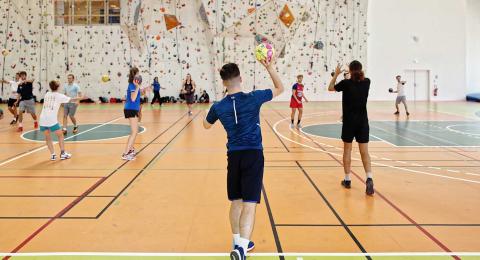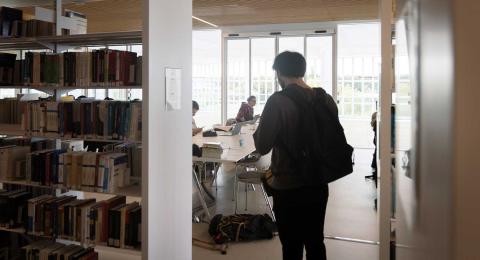M2 Optical Networks and Photonics Systems



Information
Skills
Create knowledge built on a scientific approach.
Objectives
Optical communications are integral to modern digital society, as the only technology capable of handling large amounts of data over long distances, upon which networks rely. Moreover, the continual development of new online services requires sustaining an ever-increasing traffic capacity, which runs squarely into information-theory transmission limits and an uncontrolled energy consumption both. This course is supported by teaching and research groups renowned worldwide, in topics from Fundamental Physics to Information Theory through Computer Science and Networks.
The expertise in optical solutions acquired by our students is in demand not only in the Information Technology industry and academic research institutes, but translates to other applications as well in the health industry, bioscience, energy, fabrication technologies, environment, and many others.
We aim to train engineers and researchers who can meet these challenges: design optical communication systems suited to given constraints and required applications; design cross-layer optical network architectures, from the physical layer to higher network layers; select optical components according to their performances among current and future solutions; and design the photonic devices needed for optical data processing and transport in future networks.
Fees and scholarships
The amounts may vary depending on the programme and your personal circumstances.
Capacity
Available Places
Supporting documents
Compulsory supporting documents
Copy diplomas.
Motivation letter.
All transcripts of the years / semesters validated since the high school diploma at the date of application.
Certificate of English level.
Curriculum Vitae.
Detailed description and hourly volume of courses taken since the beginning of the university program.
The application procedure, which depends on your nationality and your situation is explained here : https://urlz.fr/i3Lo.
Additional supporting documents
Letter of recommendation or internship evaluation.
Certificate of English level (compulsory for non-English speakers).
VAP file (obligatory for all persons requesting a valuation of the assets to enter the diploma).
Supporting documents :
- Residence permit stating the country of residence of the first country
- Or receipt of request stating the country of first asylum
- Or document from the UNHCR granting refugee status
- Or receipt of refugee status request delivered in France
- Or residence permit stating the refugee status delivered in France
- Or document stating subsidiary protection in France or abroad
- Or document stating temporary protection in France or abroad.





